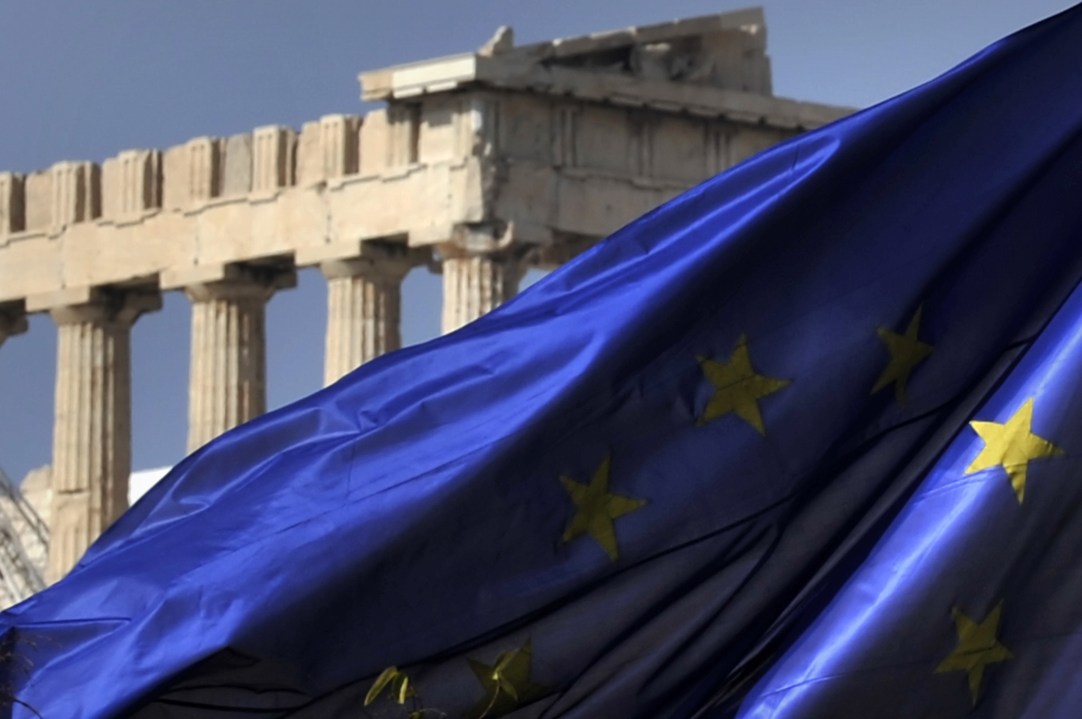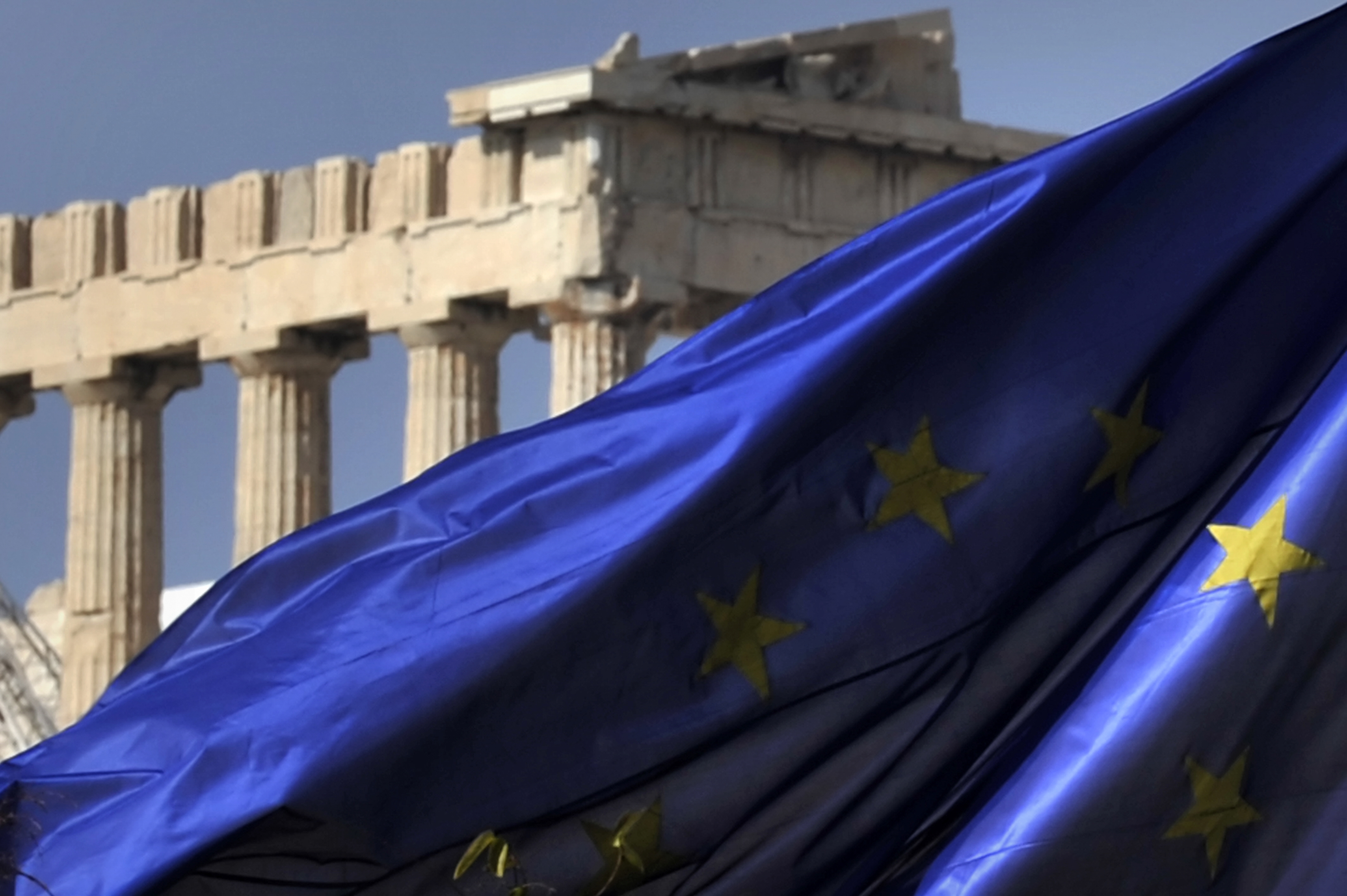Even before we were a month in, 2011 was an historic year. Principally because in a region of the world where governments shift through military coup or foreign intervention, dictators fell — and others tottered — thanks to local popular uprisings. Whatever the outcome of those events (and I have expressed my fears elsewhere, here) they remain a landmark worth observing. Whether or not the coming years are any good at all for them, 2011 was a great year for democrats in the Middle East. In the older democracies of the West, however, 2011 was more disconcerting.
If anyone doubts this, consider the following experiment. It is the beginning of any year other than this one over the last two decades. Someone tells you that the coming year will see the replacement of two democratically elected leaders in European countries. In any of those years — say 1996, 2000, 2005 — it would be surprising though not impossible. Perhaps a Junta had returned in Greece? Or a former Eastern bloc country had slipped disastrously backwards? Whichever countries you had identified as vulnerable, you would — as a democrat — at least console yourself that this disaster would bring a torrent of condemnation from the political capitals of Europe? But no, you are told. The situation is not nearly so rosy as that. Not only will two democratic leaders be deposed in the year ahead — they will be replaced by bureaucrats. And worse: no democratic leader in any position of power across Europe will express anything other than relief over this outcome. Until the year that just passed this thought-experiment would have seemed dystopian. Surely something had gone terribly wrong if such a wholesale failure of the democratic process had occurred in Europe? It would suggest that we had missed or ignored a growing failure within the democratic system of a whole continent.
Yet this is where we are as we begin 2012. Since 2008 the question everyone has been expected to consider is what we need to do to reform our financial institutions. It is an important question. But we now need to ask an even more greater one: how can we reform our democratic institutions? How can we ensure that our democracies are up to the job?
Among the things 2011 showed was that addressing any such question must begin — though not end — with the European project. For years people derided as ‘Eurosceptics’ warned that this project had gone awry. For some the argument was made principally on grounds of sovereignty, for others on a recognition that the European project had become not just undemocratic, but anti-democratic. It is the equally valid second critique whose time has surely come. The continent-wide political reality we are witnessing is a result of what happens when democracy is diminished. Over recent years, whenever a smidgeon of democracy emerged from the EU it was of an ever more unwell kind (referendums being repeated if the ‘correct’ answer wasn’t reached; the appointment of unelected continent-wide ‘Ministers’ in closed rooms in Brussels). This year will have been wasted if it is not, at its end, widely realised that despite any manner of good intentions, the European project has damaged not just Europe and Europeans, but the ideals and practice of democracy. The EU tried to get around the people. We should now work out how the people can get around the EU.
Of course, the inability of Silvio Berlusconi and George Papandreou to institute essential budgetary reforms in their respective countries cannot be solely blamed on Brussels. The failure of democratic institutions and leadership has trickled up as well as down. Reform of our democratic institutions will have to address underlying national and individual issues of which we should have been aware. For instance, an unwillingness to sacrifice short-term political goals for long-term political necessities has always been a flaw on which democrats have had to keep their eye. But across the capitals of Europe it was as if such a challenge no longer existed — as if we had surpassed it. Indeed, we saw short-term irresponsibility encouraged. Short- term thinking by governments has been as unchecked as short- term thinking in personal finances. In part this is because, at the individual and governmental levels, the notion has been encouraged not merely that there may be no such thing as failure, but that if there is such a thing — and even when you are directly responsible — you may not have to pay for it. From the media, through our Parliament, and across a wide strata of society on our streets, 2011 demonstrated that the concept not just of personal responsibility, but of personal culpability, is becoming alien.
One of the late Osama bin Laden’s few wise sayings was that if people see a strong horse and a weak horse they tend to back the strong horse. Even before he met the Navy Seals in May, bin Laden’s mule was not up to the race. But the reason that I say all the above — and think it worth considering — is that around the world, even more than usual, things are in flux. Across whole countries and continents, millions of people are looking to see which systems are able to provide for their needs and aspirations. The debate is opening up again as it hasn’t in years.
If the democracies come out badly from that balance then many people may yet size up other options. And if they jump, then even if we are not the first to know about it, neither will we be the last.








Comments